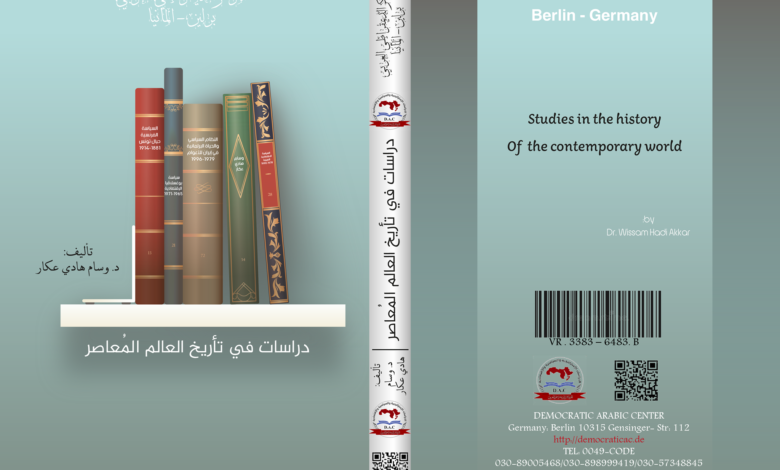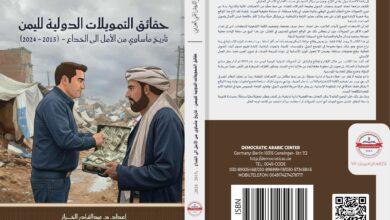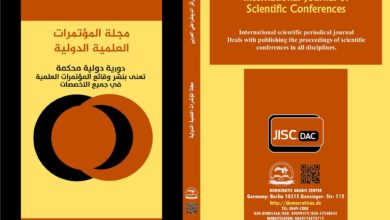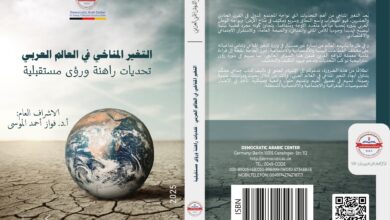
تأليف : أ.م.د. وسام هادي عكار – وزارة التربية العراقية/ المُديرية العامة لتربية بغداد/ الكرخ الثانية
نسخة “pdf”-
دراسات في تأريخ العالم المُعاصر
الطبعة الأولى “2021″ –من كتاب: – دراسات في تأريخ العالم المُعاصر
جميع حقوق الطبع محفوظة #المركز_الديمقراطي_العربي ولا يسمح بإعادة إصدار هذا الكتاب أو اي جزء منه أو تخزينه في نطاق إستعادة المعلومات أو نقله بأي شكل من الأشكال، دون إذن مسبق خطي من الناشر .
تقديم:
لا شك ان الهدف من دراسة التاريخ هو خدمة الحاضر والمستقبل، وانه لا معنى للاهتمام بوقائعه والغوص في تفاصيله إذا لم يكن مفيدا للحاضر الذي نعيشه والمستقبل الذي نطمح أليه. فاهتمامنا بتاريخنا هو تعبير عن اهتمامنا بحاضرنا ومستقبلنا أكثر مما هو تعبير عن اهتمامنا بماضينا، لأن الماضي قد طويت صفحته بكل ما فيها من ايجابيات وسلبيات، من انتصارات وانكسارات ونجاحات واخفاقات.
لم يعد بإمكاننا تغيير اي شيء من وقائعه او تعديل اي مفصل من مفاصله، ولكن علينا ان نستفيد من دروسه وعبره في تغيير حاضرنا ورسم معالم مستقبلنا، ومن هنا ينبع سر اهتمامنا به وأهمية دراسته واستحضاره.
في ضوء ذلك، جاءت هذه الدراسة لكي تُسلط الضوء على جوانب متعددة من تأريخ العالم المُعاصر، والتي سبق وان نشرت في دوريات متعددة ولربما قد لا تكون في مُتناول الجميع. قُسمت الدراسة إلى اربعة فصول تناول الفصل الأول السياسة الفرنسية حيال تونس( 1881-1914)، وقد قسم إلى أربعة محاور رئيسة تناول الأول منها الأوضاع العامة في تونس حتى عام 1881، بينما تطرق المحور الثاني إلى الأوضاع السياسية في تونس (1881-1914)، في حين درس المحور الثالث، الأوضاع الإقتصادية في تونس(1881-1914) ومدى تأثرها في سياسة فرنسا الاستعمارية، أما المحور الأخير فقد عالج مدى انحدار الأوضاع الاجتماعية في تونس إلى عام 1914،
تطرق الفصل الثاني إلى سياسة يوغسلاڤيا الإقتصادية منذُ إعلان قانون الإصلاح الإقتصادي عام 1965 إلىٰ أزمة النقد العالمية عام 1971 وإنعكاسها عَلىٰ الإقتصاد اليوغسلاڤي ، إذ قُسِّم الفصل إلىٰ ثلاثة محاور ، قدم الأول منها لمحة جغرافية وتأريخية عن يوغسلاڤيا وطبيعة نظامها الإقتصادي حتى عام 1965. وتصدى المحور الثاني إلىٰ سياسة يوغسلاڤيا الإقتصادية، في حين إهتم المحور الثالث بدراسة أهم موارد يوغسلاڤيا الإقتصادية الزراعية والصناعية والتجارية.
تناول الفصل الثالث السياسة الاقتصادية الصينية (1978-1992)، إذ قسم إلى ثلاثة محاور رئيسة، تطرق الأول إلى أهمية الموقع الجُغرافي على النشاط الاقتصادي، أما المحور الثاني فقد تناول أهمية الإصلاحات الاقتصادية في عهد (دنغ)، وأثرها في تطور السياسة الاقتصادية عن طريق ارتفاع الاستثمارات الأجنبية الخارجية داخل الصين، في حين أوضح المحور الأخير، مقومات السياسة الاقتصادية.
درس الفصل الرابع (النظام السياسي والحياة البرلمانية في إيران للأعوام 1979-1996)، إذ قسّم على أربعة محاور أساسية. تطرق الأول منها إلى لمحة موجزة عن النظام السياسي الإيراني بعد الثورة الإسلامية عام1979. ودرس المحور الثاني السلطة التشريعية، تحديداً صلاحيات (مجلس الشورى الإسلامي). في حين تناول المحور الثالث أهم الأحزاب والتيارات السياسية في إيران أما المحور الأخير فقد أوجزنا فيه أعمال الدورات الانتخابية منذ عام 1980 وحتى عام 1996.
Assistant Prof. Wissam Hadi Akkar – The Iraqi Ministry of Education – General Directorate of Education in Baghdad / Al-Karkh II.
Abstract
There is no doubt that the target of the studying history is to serve the present and the future, and that it does not make sense to pay attention to its facts and go deeper into its details if it is not useful to the present where we live in and the future we aspire to. Our interest in our history is an expression of our concern for our present and our future more than it is an expression of our interest in our past, because the past turned its page with all its positives and negatives, victories, failures, successes and failures.
We can no longer change anything from its facts or amend of any aspect of it , but we have to benefit from its lessons and wisdom in changing our present and drawing the form of our future, from this idea is being the secret of our interest in it and the importance of studying and bringing it up . .
According to that , this study came in order to shed light on multiple aspects of the history of the contemporary world, which had previously been published in multiple periods and may not be accessible to everybody. The study was divided into four chapters. The first chapter dealt with the French policy towards Tunisia (1881-1914), and it was divided into four main axes, the first of which dealt with the general situation in Tunisia until 1881, while the second axis dealt with the political situation in Tunisia (1881-1914), While the third axis studied the economic conditions in Tunisia (1881-1914) and the extent of its influence on the policy of colonial France, the last axis dealt with the extent of the decline of social conditions in Tunisia until 1914 .
The second chapter dealt with the economic policy of Yugoslavia from the announcement of the Economic Reform Act in 1965 to the global financial crisis in 1971 and its reflection on the Yugoslav economy, then the chapter was divided into three axes, the first of which provided a geographical and historical overview of Yugoslavia and the nature of its economic system until 1965 . The second axis talked about Yugoslavia’s economic policy, while the third axis focused on studying the most important economic, agricultural, industrial and commercial resources of Yugoslavia.
The third chapter dealt with the Chinese economic policy (1978-1992), then it was divided into three main axes. The first dealt with the importance of the geographical location on economic activity, while the second axis dealt with the importance of economic reforms during the reign of (Deng), and their impact on the development of economic policy through The increase in the external foreign investments in China, while the last axis clarified the elements of economic policy.
The fourth chapter included (the political system and parliamentary life in Iran for the years 1979-1996), then it was divided into four main axes. The first dealt with a brief overview of the Iranian political system after the Islamic Revolution in 1979. The second axis included the legislative authority, specifically, the powers of the (Islamic Consultative Assembly). While the third axis dealt with the most important political parties and groups in Iran, while the last axis we summarized the work of the electoral courses from 1980 until 1996.
- الناشر: المركز الديمقراطي العربي للدراسات الإستراتيجية والسياسية والاقتصادية





